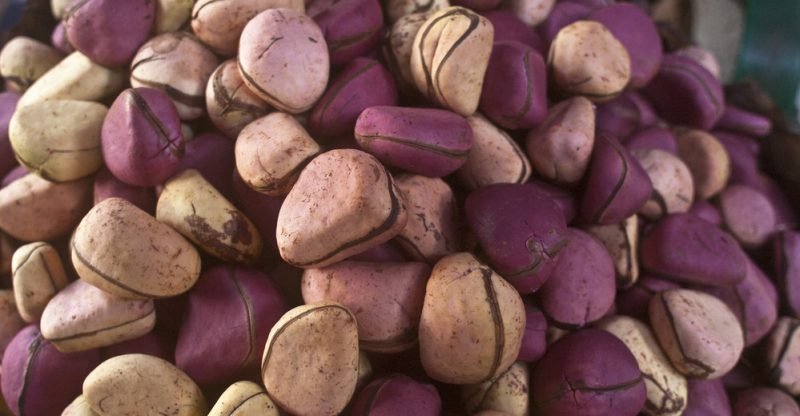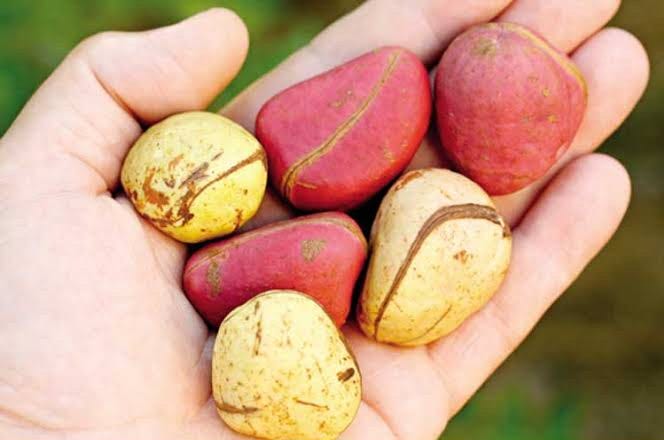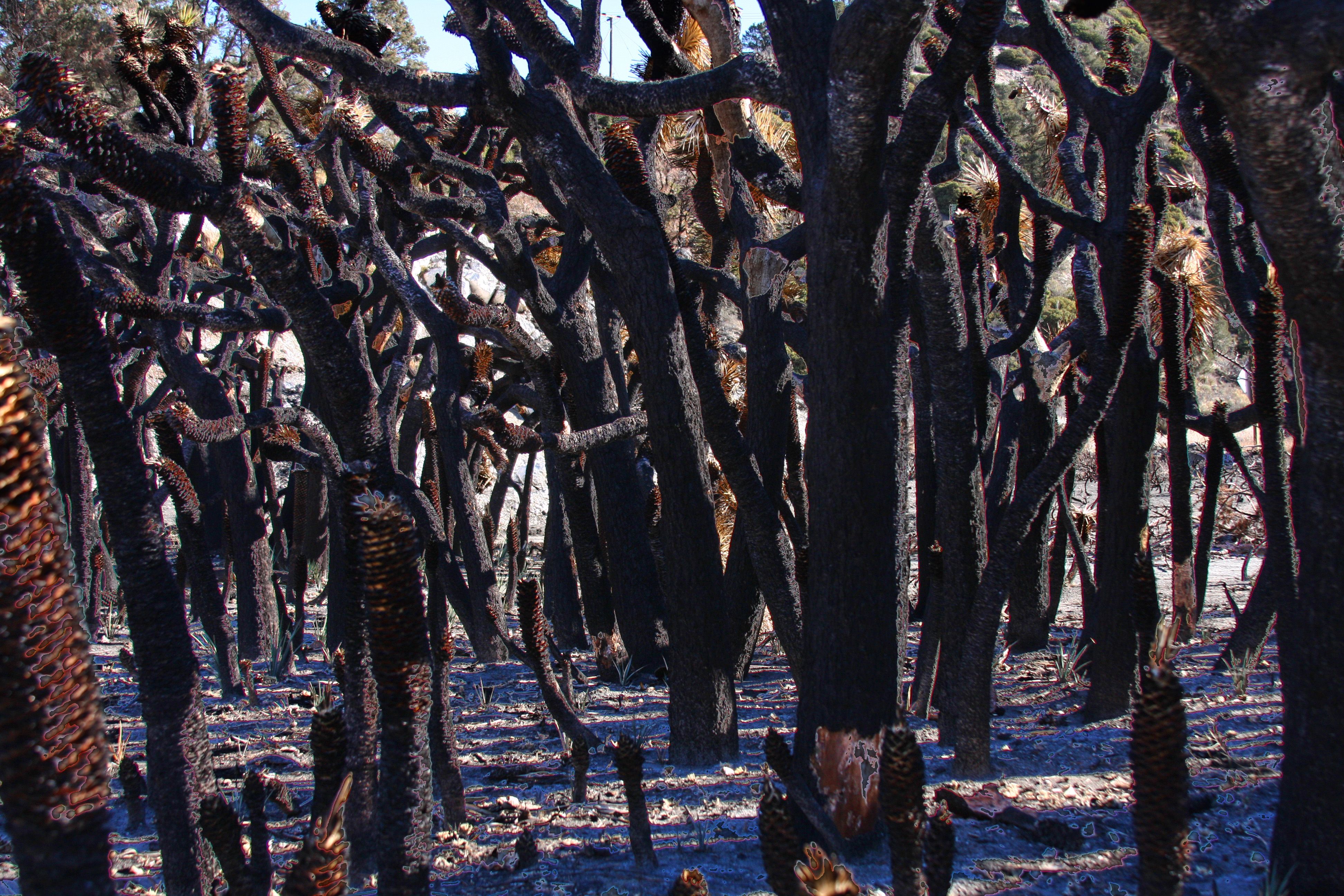Saturday, March 30, 2019
Lil abner and Things fall apart
After seeing the well performed and witty musical this week with our very talented classmates, I was thinking about the general concept of “sadie Hawkins day” and how it relates to our current cultures as well as cultures in our current readings. Sadie Hawkins day is the day where basically if a girl catches a boy in a race, they get to marry them on the spot. In American culture.. well I don’t think I need to summarize how that generally works.. I think we all know. And in the ibo culture, polygamy is clearly quite common. I think it’s interesting to think about different types of loves and the way they develop in different cultures. Like in “Dogpatch, USA” there’s no alotted time to really fall in love before marriage, in regular American culture, relationships typically take their time before marriage for real and true love to develop, and in the ibo culture, you can apparently be in love with more than one person at once. Thinking about the different ways in which we love one another is such an interesting concept to me. I dare you to ponder it as well.
¿Stephen Moore and the Federal Reserve?
Igbo culture the men of the towns will often gather to confer and decide on an urgent matter. Urgent matters have always been something that needed to be addressed, even today. Today, some of our urgent matters include economic stability. A key factor in economic stability is interest rates. The Fed sets the interests rates. Stephen Moore is Donald Trump's pick to help lead the federal reserve bank. There are many economists who say that this is a very poor choice on the presidents part. The Federal Reserve Bank should be completely unpolitical, but many people are of the mindset that people like Stephen Moore are politicizing the most influential bank in America.
¿unemployment?
Chinua Achebe is an African writer is read and studied all over the world. In the United States, there are approximately 327,000,000 African Americans. This is about 13% of the population. The United States has actually reached its lowest unemployment rate for African Americans ever (or at least as far back as 1972, the date when the statistic was recorded) with an unemployment rate of 6.8%. The United States overall unemployment rate is currently 3.8%.
Twins in Balinese Culture
Our discussion today in class about twins being considered evil in many African cultures--and subsequently being left to die--reminded me of a Balinese tradition I once read about. In Balinese culture, it used to be very common for twins of the opposite sex to marry each other. The belief in Balinese culture was that opposite sex twins were literally matches made in Heaven, so it was only right for them to marry each other. I read this article when I was thirteen years old, but I have for some reason always remembered it. Personally, while this tradition is definitely incestuous and weird, this Balinese viewpoint of looking at twins is quite fascinating. Considering opposite gender twins "matches made in Heaven" seems much more logical to me than many other ancient myths I have heard. For cultures that believed in a Heaven (like the Balinese) and believed that babies are 'made' in Heaven, the belief that opposite gender twins are matches made in Heaven and should marry each other is actually a fairly logical step.
New Yam Festival and Mardi Gras
A brief comparison we made in class that I appreciated was comparing the New Yam Festival and the values of the Igbo culture to Mardi Gras and New Orleans culture. Mardi Gras is definitely one of my favorite times of the year and Fat Tuesday always depends on Easter, Lent, Ash Wednesday, etc. each year. You could compare that to the New Yam Festival which annually falls based on the cycles of the August moon. Mardi Gras falls right before a new period: Lent where we are consciously giving up something of our choice for six weeks while the New Yam Festival is focused on bringing in a new time period too: a new year and work cycle. New Yam Festival is also known as an art festival filled with bright colors, dancing, and feasting. I think that goes without saying: what would Mardi Gras be without colorful floats and beads, balls to dance at, and of course crawfish to feast on.
Friday, March 29, 2019
How to Become the "Favorite Child"
Today in English class I started thinking about something—why exactly is Ezinma Okonkwo's favorite child? I'm sure there are a ton of reasons (explored and unexplored in the novel), not to mention the fact that some people just mesh better than others. I think it's especially interesting that Okonkwo's favorite child is a girl, which indicates to me that he didn't consciously choose her to be his favorite. After all, he often wishes (aloud) that Ezinma were a boy.
So why exactly is she the favorite? I started thinking about her upbringing and everything we know about her. First of all, she is an only child whose mother is very attached to her (having lost nine other children). Not only is her mother extremely protective, but her mother also treats her daughter differently than other parents probably do. They have a relationship based on mutual respect and equality, which is odd considering Ezinma's only about 10 years old. Ezinma's relationship with her mother has likely shaped her personality, and her personality is one of the main reasons Okonkwo likes her so much. Ezinma possesses so many of the "masculine" (by Igbo standards) traits Okonkwo admires. She's independent, strong-willed, and (seemingly) fearless.
It's ironic that Okonkwo likes her so much because he believes in subduing and controlling women, but his connection to her seems to stem from his subconscious. He's drawn to her despite the fact that he holds males in much higher regard than their female counterparts. Their relationship is definitely imbued with mystery.
So why exactly is she the favorite? I started thinking about her upbringing and everything we know about her. First of all, she is an only child whose mother is very attached to her (having lost nine other children). Not only is her mother extremely protective, but her mother also treats her daughter differently than other parents probably do. They have a relationship based on mutual respect and equality, which is odd considering Ezinma's only about 10 years old. Ezinma's relationship with her mother has likely shaped her personality, and her personality is one of the main reasons Okonkwo likes her so much. Ezinma possesses so many of the "masculine" (by Igbo standards) traits Okonkwo admires. She's independent, strong-willed, and (seemingly) fearless.
It's ironic that Okonkwo likes her so much because he believes in subduing and controlling women, but his connection to her seems to stem from his subconscious. He's drawn to her despite the fact that he holds males in much higher regard than their female counterparts. Their relationship is definitely imbued with mystery.
Demon Babies Begone!
In Things Fall Apart, we read about Ekwefi's misfortune in keeping her children alive. The medicine man essentially tells Ekwefi and Okonkow that they keeping having an ogbanje, "one of those wicked children who, when they died, entered their mothers' wombs to be born again" (1136).
I did a little research about these demon babies, and here's what I discovered:
Source: https://en.wikipedia.org/wiki/Ogbanje
I did a little research about these demon babies, and here's what I discovered:
- Ogbanje literally translates to "children who come and go." Hmm...well, that's definitely one way to put it.
- This evil spirit/wicked child intentionally causes the family grief and continues to do so until...
- Female circumcision was a common tactic employed to stop this horrid cycle.
- Mutilating the dead child was another method of supposedly getting rid of the spirit. However, according to my source, sometimes these spirits were said to return with physical scarring (from the mutilation in their past life). Creepy!
- Much like what ultimately happens in Things Fall Apart, you can also find the spirit's iyi-uwa, which is what happens in Ezinma's case. To understand the iyi-uwa, you should think of it as a touchstone, or a way for the spirit to keep finding the family. If you uncover it from its hiding place, the evil spirit should stop tormenting you.
- Origin?
- Well, some people argue that the concept of ogbanje was used to explain/understand hereditary diseases, like sickle cell anemia for example. Since this disease could be passed down to many children borne from the same mother and father, many or all of them could've died due to ignorance of and lack of treatment for the disease. In turn, people could've speculated that the deaths were all linked to a common evil spirit.
- Sometimes, Igbo people would use the word ogbanje when talking about a rude or stubborn children. (So it might not always be meant literally.)
Source: https://en.wikipedia.org/wiki/Ogbanje
Etymology in Igbo and English Names
While reading Things Fall Apart, I noticed that every Igbo name has significant meaning. For example, the meaning of Okonkwo is "boy born on Nkwo" but it also suggests stubborn male pride. Whenever any character is introduced, a footnote is provided indicating the meaning of their name. I asked myself why English names do not have further significant meaning like Igbo names and conducted some research. I came across a website (https://www.momjunction.com/baby-names/) containing over 70,000 names used across America with comprehensive information behind each name. For example, Benjamin means "Son of the Right Hand" and has Christian origins. This website is very interesting and I suggest that you all take the time to find the meaning behind your name if you do not already know it.
Egwugwu
Something I enjoy about Things Fall Apart are the descriptions of human feelings; the author mentions so many little things that are rarely put into words but which a lot of people feel. For example, even in describing a certain way of walking or state of tiredness, the descriptions are so vivid. I also loved when the ritual was described with the masks and dancing, and so I wanted to look more into the Egwugwu; they were indeed masked elders, but they were not seen or treated as such. Here are some pictures.
Thursday, March 28, 2019
Igbo Culture in Photos
We've discussed many different aspects of Igbo culture while reading Things Fall Apart, but I thought it would be interesting to see what they look like in real life.
The New Yam Festival





.jpg)

The New Yam Festival
- Takes place in August-October
- Begins by breaking kola nuts, then the yams are consumed with palm oil
- Delicacies: Boiled white yam with a red oily sauce and yam porridge


Kola Nut
- Fruit that contains caffeine
- ingredient in soft drinks


The Evil Forest
- The evil forest is being cut back due to new developments
.jpg)

The Many Meanings of "Agbala"
In chapter 2, we are introduced with the Igbo word "Agbala". Agbala is another name for a woman, as well as the name for a man who has no title status. This implies that the Igbo considered all women less than the lowest class of men, reflecting their patriarchal culture. The word is first used as an insult for Unoka, who was considered weak and not respected to the people in the village. Later on, however, we discover that Agbala is also the name of the local Oracle, and in the footnotes it explains to us that although the oracle is masculine, his priestess (Chika) is feminine. I just found it interesting how Agbala is used as an insult in Umuofia, yet it is also the name of the most powerful spiritual being of the village.
Tuesday, March 26, 2019
Chinua Achebe!!
 As we discussed in class, Chinua Achebe fought his whole life to reverse the stereotype that Western Europe put on Africans. He, a Nigerian, was taught these stereotypes in school and was even baptized with the English name, Albert. He denied that name and took the one assigned at birth to him which is actually abbreviated to Chinua. I know we've gone over all of this in class, but I thought it'd be interesting to provoke a conversation and pose the question and further discussion of who else do y'all think has been influential to society but clearly negatively affected by the toxicity of colonial power? Also, here is Achebe!
As we discussed in class, Chinua Achebe fought his whole life to reverse the stereotype that Western Europe put on Africans. He, a Nigerian, was taught these stereotypes in school and was even baptized with the English name, Albert. He denied that name and took the one assigned at birth to him which is actually abbreviated to Chinua. I know we've gone over all of this in class, but I thought it'd be interesting to provoke a conversation and pose the question and further discussion of who else do y'all think has been influential to society but clearly negatively affected by the toxicity of colonial power? Also, here is Achebe! 
Okonkwo's Toxic Masculinity
To any 21st century reader of Things Fall Apart, it is no lie that Okonkwo is a man stuck in the world of lies that is toxic masculinity. He uses his dominance to evade the insecurities he has internally. He domestically abuses his wives, and he heads the household in a way that is toxic for his children. He acts more like a master than a father and a husband, and it is a shame that the toxicity he is a part of persists to be a problem in modern day politics and home life. Okonkwo, hopefully, by the end of Achebe's novel can make a sort of peace with his insecurities and let himself feel the internalized anger he's held for so long rather than taking it out on his innocent family. Unfortunately, based on the way his character is painted in the novel thus far, I have to say that the chance of him bettering himself is slim to none.
Saturday, March 2, 2019
Allusions to Shakespeare in "Hamilton"
The Broadway musical "Hamilton" is an great example of a piece that uses classical allusions to underscore the overall themes of the play, much like The Waste Land. In the song "Take a Break", US Treasurer Alexander Hamilton writes to his sister-in-law Angelica Schyuler, whom he considers to be intellectually equal with. In his letters, he openly quotes Macbeth,
“Tomorrow and tomorrow and tomorrow
Creeps in this petty pace from day to day”
I trust you’ll understand the reference to
Another Scottish tragedy without my having to name the play
They think me Macbeth, and ambition is my folly
Madison is Banquo, Jefferson’s Macduff..
Ambition is, in fact, his folly, and it's shown very clearly throughout the musical. Hamilton started from nothing, yet his ambition drove him to fight for his people and become one of the nation's founding fathers. Madison is Banquo, as he and Hamilton were partners in writing most of the US Constitution but ended up split political parties, much like Banquo switching loyalties with Macbeth. Jefferson, much like Macduff, comes back to America after Hamilton has already gained a lot of political power, and eventually becomes his main opponent.
“Tomorrow and tomorrow and tomorrow
Creeps in this petty pace from day to day”
I trust you’ll understand the reference to
Another Scottish tragedy without my having to name the play
They think me Macbeth, and ambition is my folly
Madison is Banquo, Jefferson’s Macduff..
Ambition is, in fact, his folly, and it's shown very clearly throughout the musical. Hamilton started from nothing, yet his ambition drove him to fight for his people and become one of the nation's founding fathers. Madison is Banquo, as he and Hamilton were partners in writing most of the US Constitution but ended up split political parties, much like Banquo switching loyalties with Macbeth. Jefferson, much like Macduff, comes back to America after Hamilton has already gained a lot of political power, and eventually becomes his main opponent.
The Sybil's Story and Latin Class
I was surprised when we found a reference to the Sybil who wished for immortality but not youth in our readings. This is because I came across a story in Latin class, while practicing for the national Latin exam, that I now realize was based off her story. In this version, there was a goddess who relentlessly asks Jupiter for her human lover to become immortal, but forgets to ask for eternal youth. The man becomes miserable because he wishes he could die. She ends up turning him into an insect so that he can at least be out of his pain. In the version of the story referenced in The Waste Land, the sibyl herself is the one who wishes for immortality and then becomes miserable. I was thinking about if the main messages of the stories remained the same, and I do think that if the altered version were the one being referenced in the poem that it would still work. This is because the altered version of the story ties in with the idea of love leading to one's end. Also, the man lives in sort of perpetual in-between-state; he can't fully live as a human, yet he can't die either.
¿blanket?
Currently writing this on the coast of Lake Ontario in Buffalo, New York. As we drive the snow piles higher and higher, encompassing the land. I’ve never seen real snow before and it’s comforting to see the white sheet lay atop the ground. It would be almost cruel to watch the blanket of bliss reveal the dead and frozen brush.
City vs. Nature Motif: A Firsthand Experience
In our recent readings of modernist works in class, we've discussed the idea of the city versus nature a lot. My experience last weekend revealed to me the composition of my inner self: whether I prefer the city or nature more.
Last weekend I visited two cities--two cities which perhaps could not be more polar opposites. The first city was Austin, Texas. We (my father, my mother, and I) left from New Orleans for Austin late Thursday night. We were visiting Austin to check out UT Austin--a college which I was considering at the time. Austin is currently one of America's most economically-booming cities. Much of the hype centering around the city is in large part due to UT Austin; huge companies are recognizing the talent coming out of this predominately STEM school and are flocking to build their headquarters near the University. Friday morning, we officially toured the campus. Since UT Austin is the ideal school for what I want to study (math and computers), it was difficult for me to be honest to myself and my family about my opinion of the school: I didn't like it. I think much of my dislike stems from the fact that the campus is centered right in the middle of the city. To a lost pedestrian aimlessly walking the streets of Austin, the campus would seamlessly blend in with the city itself. I could foresee myself easily getting lost in the city without knowing anybody there, so I crossed UT Austin off my list.
Our next stop was Eunice, Louisiana for a cousin's wedding. I'm sure you haven't heard of Eunice; the only reason I know anything about it is because much of my mom's side of the family is from there. We left Austin Saturday morning and arrived at our "hotel" in Eunice mid afternoon. This "hotel" was a plantation of three lodges. On the grounds, animals roam freely and visitors (including myself) are able to pet, feed, and interact with them. To say the least, it was a nice decompression from the hustle and bustle of Austin. That night, we went to the wedding. The wedding itself was painfully boring, so I was looking forward to the after party. Hyping myself up for the after party proved an awful idea because it only made the ennui ;) of the event all the more upsetting. The only thing that powered me through the two hours of sitting on my phone at a table while watching drunk old people dance was the hope that MAYBE the final stop of the night--a visit to some family friends at their own family restaurant by the name of DI's-- would be fun. And fun it was. In the middle of miles upon miles of dark roads and farmland in the middle of nowhere was this tiny, popping Cajun restaurant. It was around closing time, so DI's wasn't as jam packed as it had been earlier in the night, but the atmosphere was nevertheless lively. There was Cajun music, Cajun crawfish, and Cajun people. The culture and happiness within that 2,000 square foot Cajun paradise in the middle of nowhere was more genuine than anything one sees in most cities. Over the crawfish and the music, I talked with the family we were visiting, taught the young ones how to hang spoons on their nose, and discovered family ties I didn't know about (my grandma was childhood best friends with the owner of the restaurant! I guessed I shouldn't be too shocked, as such a "coincidence" in Eunice is probably commonplace).
As if you can't tell by now, the answer to the original question I posed--"whether I prefer the city or nature more"-- is that I hands down prefer nature!
Last weekend I visited two cities--two cities which perhaps could not be more polar opposites. The first city was Austin, Texas. We (my father, my mother, and I) left from New Orleans for Austin late Thursday night. We were visiting Austin to check out UT Austin--a college which I was considering at the time. Austin is currently one of America's most economically-booming cities. Much of the hype centering around the city is in large part due to UT Austin; huge companies are recognizing the talent coming out of this predominately STEM school and are flocking to build their headquarters near the University. Friday morning, we officially toured the campus. Since UT Austin is the ideal school for what I want to study (math and computers), it was difficult for me to be honest to myself and my family about my opinion of the school: I didn't like it. I think much of my dislike stems from the fact that the campus is centered right in the middle of the city. To a lost pedestrian aimlessly walking the streets of Austin, the campus would seamlessly blend in with the city itself. I could foresee myself easily getting lost in the city without knowing anybody there, so I crossed UT Austin off my list.
Our next stop was Eunice, Louisiana for a cousin's wedding. I'm sure you haven't heard of Eunice; the only reason I know anything about it is because much of my mom's side of the family is from there. We left Austin Saturday morning and arrived at our "hotel" in Eunice mid afternoon. This "hotel" was a plantation of three lodges. On the grounds, animals roam freely and visitors (including myself) are able to pet, feed, and interact with them. To say the least, it was a nice decompression from the hustle and bustle of Austin. That night, we went to the wedding. The wedding itself was painfully boring, so I was looking forward to the after party. Hyping myself up for the after party proved an awful idea because it only made the ennui ;) of the event all the more upsetting. The only thing that powered me through the two hours of sitting on my phone at a table while watching drunk old people dance was the hope that MAYBE the final stop of the night--a visit to some family friends at their own family restaurant by the name of DI's-- would be fun. And fun it was. In the middle of miles upon miles of dark roads and farmland in the middle of nowhere was this tiny, popping Cajun restaurant. It was around closing time, so DI's wasn't as jam packed as it had been earlier in the night, but the atmosphere was nevertheless lively. There was Cajun music, Cajun crawfish, and Cajun people. The culture and happiness within that 2,000 square foot Cajun paradise in the middle of nowhere was more genuine than anything one sees in most cities. Over the crawfish and the music, I talked with the family we were visiting, taught the young ones how to hang spoons on their nose, and discovered family ties I didn't know about (my grandma was childhood best friends with the owner of the restaurant! I guessed I shouldn't be too shocked, as such a "coincidence" in Eunice is probably commonplace).
As if you can't tell by now, the answer to the original question I posed--"whether I prefer the city or nature more"-- is that I hands down prefer nature!
My Independent Study Novel: Slaughterhouse Five
For anybody wondering, I have chosen to read Slaughterhouse Five by Kurt Vonnegut for this independent study unit. Although a fictional account with made up characters and some embellished plot aspects, the novel closely follows Vonnegut's experience during World War II. The novel centers around Billy Pilgrim-- a child captured by the Germans in World War II. Once captured, Billy is brought to Dresden where he is placed in a slaughterhouse. While there, he is one of the lucky few to survive beatings, bombings, and other cruelties.
I'm especially excited to read this novel given the book I chose to read last year for our nonfiction independent study unit: Unbroken by Laura Hillenbrand. Both Slaughterhouse Five and Unbroken center around World War II, so I'm confident that Slaughterhouse Five, although fictional, will only further expand the knowledge and appreciation I gained about World War II in reading Unbroken.
I'm especially excited to read this novel given the book I chose to read last year for our nonfiction independent study unit: Unbroken by Laura Hillenbrand. Both Slaughterhouse Five and Unbroken center around World War II, so I'm confident that Slaughterhouse Five, although fictional, will only further expand the knowledge and appreciation I gained about World War II in reading Unbroken.
Wasteland, Baby!
So as we are reading T.S. Eliot's "The Waste Land", Hozier has released a new album titled Wasteland, Baby!, including a song with the same title. Here are some lyrics that allude to destruction (in this context: of love):
"All the things yet to come are the things that have passed
Like the holding of hands, like the breaking of glass
Like the bonfire that burns, at all worth in the fight fell too"
"And that day that we watch the death of the sun
That the cloud and the cold and those jeans you have on
And you gaze unafraid as they sob from the city ruins"
There are some other pretty great songs on it and I highly recommend. :)

"All the things yet to come are the things that have passed
Like the holding of hands, like the breaking of glass
Like the bonfire that burns, at all worth in the fight fell too"
"And that day that we watch the death of the sun
That the cloud and the cold and those jeans you have on
And you gaze unafraid as they sob from the city ruins"
There are some other pretty great songs on it and I highly recommend. :)

A Waste Land: Construction in New Orleans
I was headed to school from downtown Thursday morning and upon turning off of Convention Center Blvd headed onto I-10, it was extremely foggy and there was a huge construction barrier on the neutral ground. We had just discussed the fourth paragraph of the first part with the "brown fog" in London and although New Orleans ain't no London, I was immediately reminded of this.
The Wasteland: Art
Attached are some pieces of art inspired by The Wasteland. I find it interesting how all are scattered in their composition, almost confusing to look at, as this relates not only to fragmentation but to the major themes of the poem. The last piece in particular resonated with me as it shows an apparently broken man, composed of pieces that don't blend and features that are divided by blunt lines. Through this technique, the artist has reflected the style of the poem while demonstrating T.S. Eliot's portrait of a modern man. The first two pieces evoke similar emotions: chaos, confusion, and the corruption brought with modernity.






Subscribe to:
Comments (Atom)






